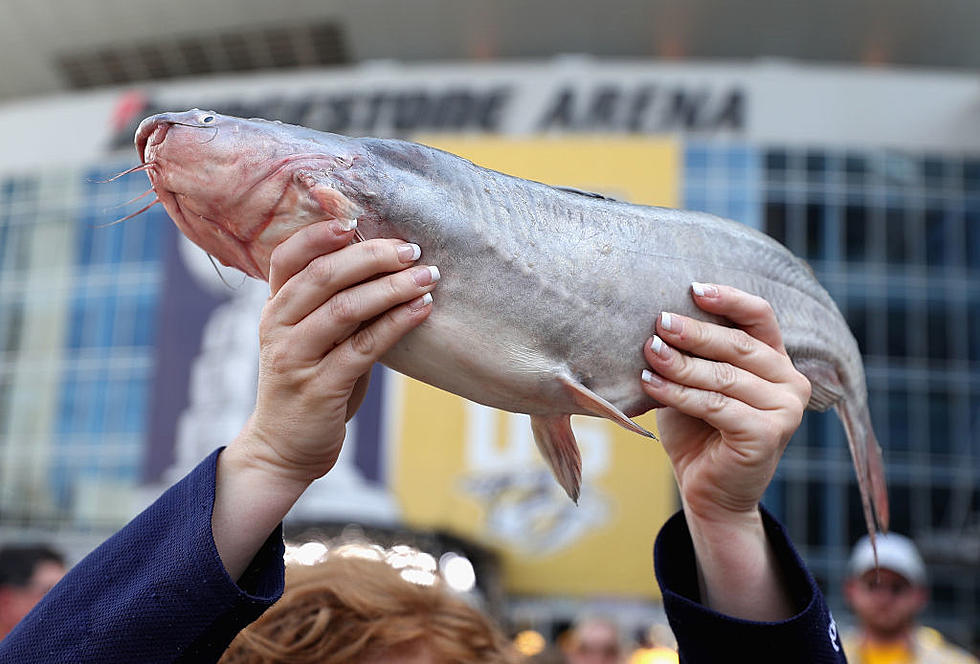
OOPS! CT Man Eats Record Shattering Fish Before Being Verified
If this story wasn't so funny it would be a darn shame.
Earlier in September, we told you about Ben Tomkunas, the Connecticut angler who hauled in what appeared to be a record white catfish that tipped the scales at 21.3 pounds, which when validated, would have qualified the fish as a new world record. According to fieldandstream.com, the previous world record for a catfish was 19 pounds 5 ounces set back in 2005 in California, and the previous Connecticut record was 12.7 pounds.

This catch did not come without a bit of controversy regarding the exact species of catfish. The waters in Coventry, where the giant catfish was caught is also loaded with channel catfish, who are also indigenous to the region. It can be difficult to distinguish between the two fish, and that's where the International Game Fish Association comes in to verify the catch, and either recognize the catch as a record or not.
The problem here is the association never got its chance to verify the species of the fish because the morning after the fish was caught, Tomkunas gave the record setting catch to his grandfather, and the fish was cooked up and eaten.
The Connecticut Fish and Wildlife Conservation Office does recognize the weight of the fish, but needed to verify the fish was actually a white catfish. Videos and still images that have been provided have proven inconclusive to definitively identify the exact species.
The association posted this message on their Facebook page on Monday:
So as of now, without hands on verification, the potential world record catch has been overturned and the world record has been recalled.
There is one lesson to be learned from this, and that was echoed by the Connecticut Department of Energy and Environmental Protection who are now urging anglers to keep any potential record breaking fish until authorities have confirmed the species.
LOOK: Here are the best lake towns to live in
LOOK: Here are the 50 best beach towns in America
More From WRKI and WINE









